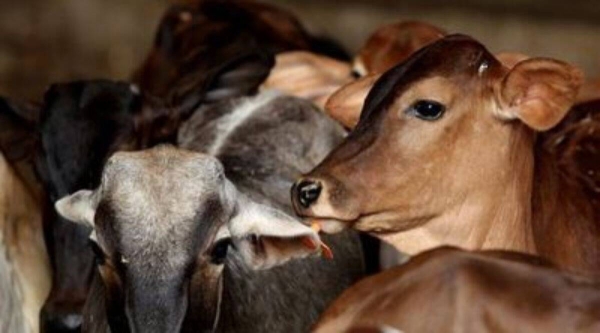Cattle insurance scheme likely to be announced in Budget 2023
A large-scale cattle insurance scheme could work on a PMFBY structure, in which livestock owners could be required to pay minimal premiums, with the remaining a
- by B2B Desk 2023-01-25 12:07:16
Union Budget 2023-24 could feature a catttle insurance scheme on the lines of Pradhan Mantri Fasal Bima Yojana (PMFBY), the world's largest crop insurance scheme by farmer registration, according to official data by the Agriculture minister in Parliament.
A large-scale cattle insurance scheme could work on a PMFBY structure, in which livestock owners could be required to pay minimal premiums, with the remaining amount shared equally between the central and state governments, according to reports from the media.
For PMFBY, it is unlikely that Budget 2023 allocations will experience a significant increase in 2023-24
The PMFBY has been in operation since 2016 and official data shows that, on average, 55 million registration requests are received in the system each year. PMFBY guarantees the minimum financial burden for the farmer, as he is required to pay only 1.5 percent and 2 percent of the total insurance premium for the Rabi and Kharif seasons, respectively.

The remaining burden of premiums is borne by state and central governments in a 50:50 ratio (except the northeastern states where the ratio is 90:10). In six years of PMFBY implementation, farmers paid a collective premium of Rs 25,186 crore, but submitted claims in the amount of Rs 1,25,662 crore as of October 31, 2022.
In an official statement, the Department of Agriculture and Farmer Welfare recently stated that after the introduction of PMFBY in 2016, there was comprehensive coverage of all crops and risks, from the pre-planting period to the post harvest period.
Following a review of the scheme in 2018, the crop loss alert period for farmers was increased from 48 hours to 72 hours, taking into account that signs of damage disappear are lost in local disasters after 72 hours. Similarly, after its 2020 revamp, the scheme added voluntary registration and included additional cover for wildlife attacks to make the scheme more suitable for farmers.
But despite all its remarkable features, PMFBY has not been implemented in many states including Bihar, West Bengal, Gujarat and Punjab. Some of these countries plan to join, while others have cited cost considerations for moving.
The latter cannot afford to share the burden of premium under the scheme. Another problem with the scheme, apart from the fact that it is not implemented nationwide yet, is the ridiculously low amounts of money paid out for claims that are deposited into farmers' bank accounts. Recently in Rajasthan, farmers in one of the severely drought-stricken areas complained of getting insurance amounts less than a rupee for some crops.
Also Read: Budget 2023: What home buyers can expect from FM Nirmala Sitharaman?
POPULAR POSTS
Top 10 Insurance Companies in India 2026: Life, Health, and General Insurance Leaders Explained
by Shan, 2025-10-30 10:06:42
GST Council Scraps Tax on Life & Health Insurance Premiums: What It Means for Consumers and Insurers
by Shan, 2025-09-04 08:37:28
Types of Insurance Policies in India: Choose the Best for Your Needs
by Anmol Chitransh, 2025-02-19 07:17:26
Types of Pet Insurance: All You Need to Know Before Buying It
by B2B Desk, 2025-02-10 10:47:01
60% of Health Insurance Claimants Face Discharge Delays, Push for Web Processing Solutions
by B2B Desk, 2025-01-03 08:54:35
What is Cashless Health Insurance and How Does It Work?
by B2B Desk, 2024-08-28 06:09:32
Top Cyber Insurance Companies in India: Protecting Your Digital Assets
by B2B Desk, 2024-08-23 12:23:41
RECENTLY PUBLISHED

Loan EMIs to Drop as RBI Slashes Repo Rate - Full MPC December 2025 Highlights
- by Shan, 2025-12-05 11:49:44

The Agentic Revolution: Why Salesforce Is Betting Its Future on AI Agents
- by Shan, 2025-11-05 10:29:23

Pine Labs IPO 2025: Listing Date, Grey Market Premium, and Expert Outlook
- by Shan, 2025-11-05 09:57:07

OpenAI Offers ChatGPT Go Free in India: What’s Behind This Big AI Giveaway?
- by Shan, 2025-10-28 12:19:11

Best Silver Investment Platforms for 2025: From CFDs to Digital Vaults Explained
- by Shan, 2025-10-23 12:22:46





 Subscribe now
Subscribe now 